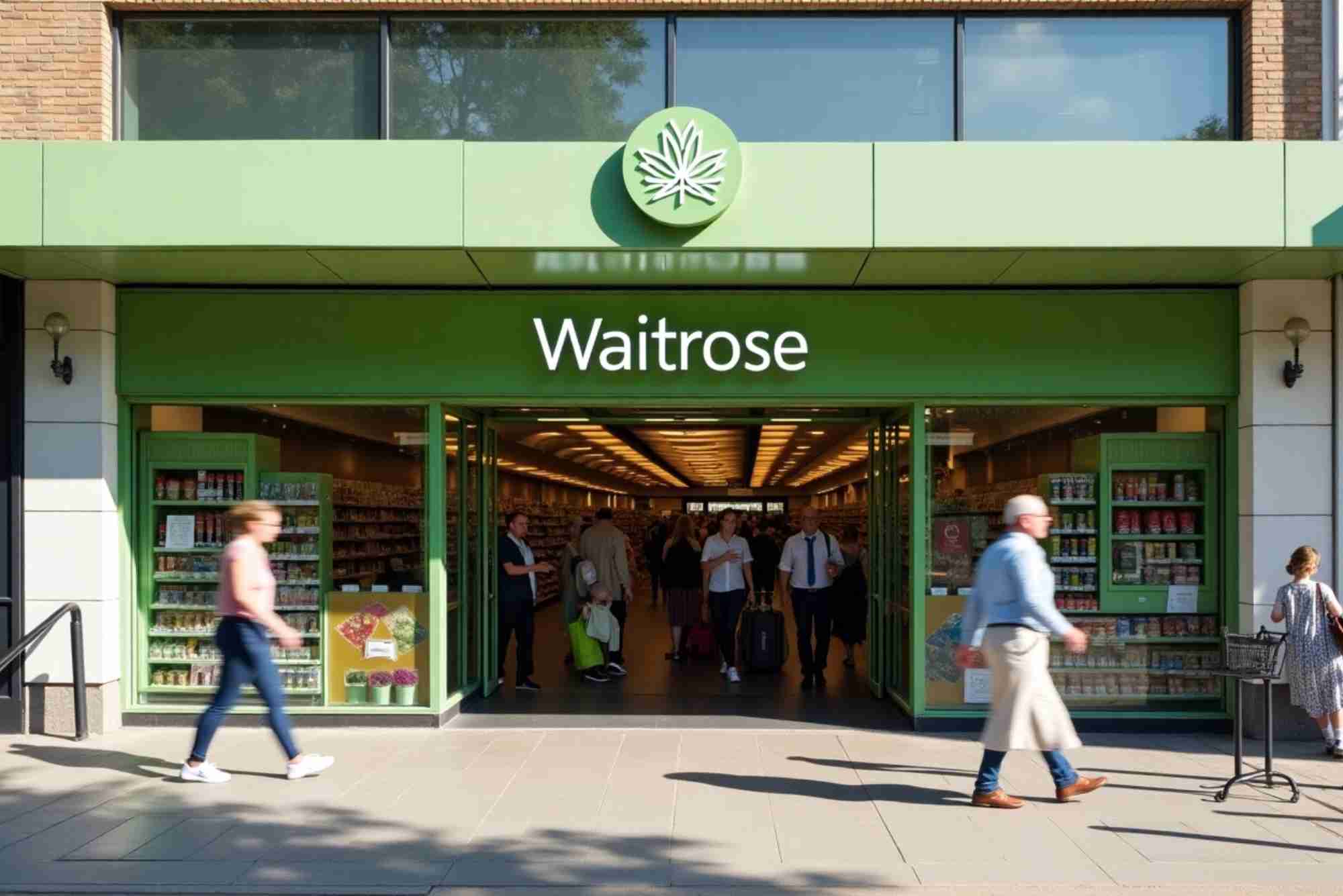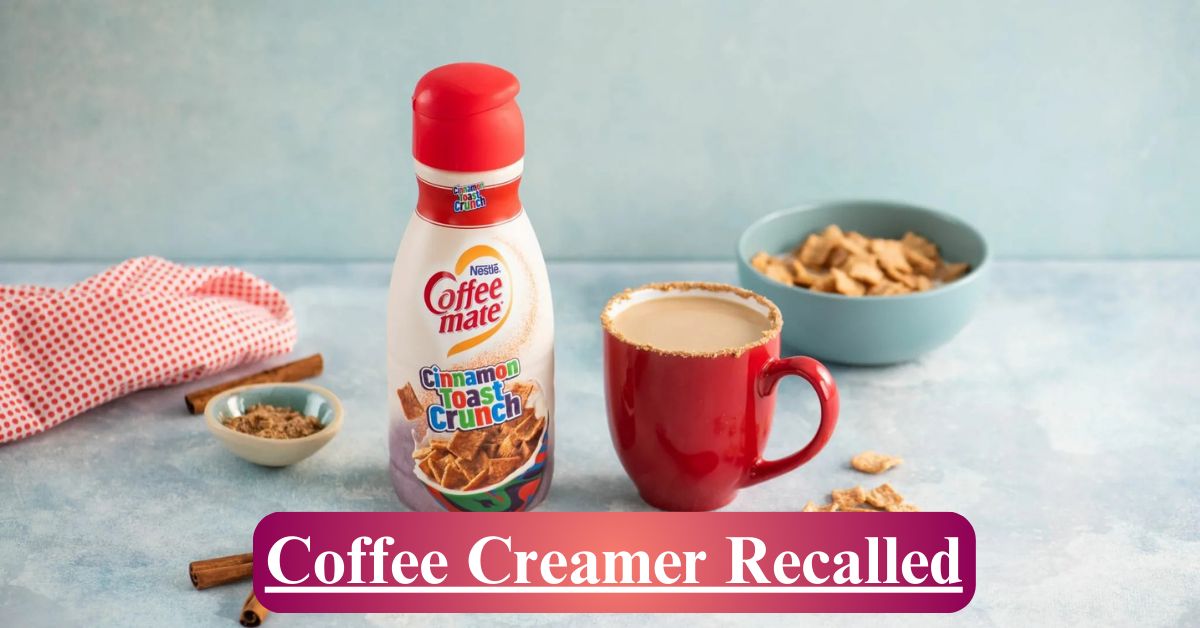A recent recall of popular coffee creamers has sparked concern among consumers nationwide. When a beloved product used in countless morning routines is suddenly pulled from shelves, it can disrupt habits and raise questions about food safety. In this article, we delve into the details behind the recall, the potential risks associated with using these products, and provide step-by-step guidance on what to do if you suspect your creamer is affected. With a focus on transparency and actionable advice, our goal is to help you stay informed and safe.
Table of Contents
ToggleWhy Was the Coffee Creamer Recalled?
Recalls are not uncommon in the food industry, but they always warrant careful attention. In this case, the recall was issued due to several quality and safety concerns:
- Contamination Issues: Reports have indicated that the affected coffee creamers might be contaminated with harmful bacteria. The possibility of bacterial agents—such as Listeria monocytogenes or Salmonella—has prompted health authorities to take action.
- Premature Spoilage and Texture Problems: Consumer complaints noted that some bottles exhibited premature spoilage. A texture change was observed, which raised red flags about the integrity of the product. Although the manufacturer has stated that this is primarily a quality issue, the Food and Drug Administration (FDA) has reclassified the recall to a Class II risk.
- Undeclared Allergens and Foreign Materials: Some batches were also flagged for potential undeclared allergens or the presence of foreign material. Even if these contaminants are not always visible to the naked eye, they can pose serious health risks for sensitive individuals.
Affected Products and Recall Details
The recall centers on two specific flavors of coffee creamer from a well-known brand. Here’s what you need to know:
| Product Name | Flavor | Size | Best-By Date | UPC | Recall Quantity |
|---|---|---|---|---|---|
| International Delight Cinnabon Classic Cinnamon Roll Creamer | Cinnabon Classic Cinnamon Roll | 32 oz | July 03, 2025 | 0 41271 01993 3 | 46,482 bottles (7,747 cases) |
| International Delight Hazelnut Coffee Creamer | Hazelnut | 32 oz | July 02, 2025 | 0 41271 02565 2 | 28,572 bottles (4,762 cases) |
Note: Both products are distributed across 31 states.
Health Risks Associated with Contaminated Coffee Creamers
Using a recalled or contaminated coffee creamer can lead to several potential health issues:

1. Foodborne Illnesses
Consuming products contaminated with harmful bacteria can lead to food poisoning. Common symptoms include:
- Nausea and Vomiting: These are the body’s immediate responses to ingesting pathogens.
- Abdominal Cramps and Diarrhea: Bacterial toxins can irritate the gastrointestinal tract, leading to these uncomfortable symptoms.
- Fever and Chills: A heightened immune response may occur, particularly in vulnerable populations such as the elderly, young children, and those with compromised immune systems.
In severe cases, such infections might require hospitalization or could result in longer-term complications.
2. Allergic Reactions
For consumers with known allergies, undeclared allergens in the product can trigger severe reactions:
- Skin Reactions: Rashes, itching, or hives.
- Respiratory Distress: Swelling of the face, tongue, or throat, which can lead to breathing difficulties.
- Anaphylaxis: This life-threatening condition requires immediate medical intervention.
3. Risks from Foreign Materials
There have been instances where foreign objects, such as plastic or metal particles, were found in the product. These materials can cause:
- Choking Hazards: Especially in children or the elderly.
- Internal Injuries: Ingested fragments might lead to cuts or abrasions in the digestive tract.
What to Do If You Have a Recalled Coffee Creamer
If you suspect that you have one of the recalled coffee creamers in your refrigerator, follow these important steps immediately:

1. Verify the Product Details
- Check the Label: Compare the UPC code, lot number, and best-by date on your bottle against the recall notice. The affected products have specific identifiers, so it’s crucial to match these details.
- Visit Official Websites: Check the manufacturer’s website or the FDA’s recall page for the most up-to-date information regarding the recall.
2. Cease Consumption Immediately
- Even if the creamer appears normal, do not use it. Contaminants or allergens may not be visible, and continuing to use the product might pose health risks.
3. Contact the Retailer or Manufacturer
- Return the Product: Most manufacturers advise returning the recalled product to the store where it was purchased for a refund or replacement.
- Consumer Care Line: For instance, if your product is from International Delight, you can contact their Consumer Care Line at 1-800-441-3321 for further instructions or to report any symptoms.
4. Monitor Your Health
- If you experience any symptoms such as nausea, vomiting, or allergic reactions after consuming the product, seek medical attention immediately. Keep a record of your symptoms and contact your healthcare provider.
5. Inform Others
- Spread the word among family, friends, and colleagues. Public awareness can help prevent further cases of illness and ensure that everyone is cautious about using recalled products.
Expert Insights on the Recall
Health and safety experts emphasize the importance of responding promptly to food recalls. Here are a few key takeaways:
-
Dr. Emily Richards, Food Safety Specialist:
“Even though a Class II recall suggests that the risk of serious health consequences is remote, it is still imperative for consumers to act immediately. Temporary illnesses can escalate, especially among vulnerable populations.” -
Nutritionist Sarah Patel:
“Consumers should not only rely on brand reputation but also stay informed about product recalls. It’s important to regularly check official sources like the FDA website and manufacturer announcements.” -
Public Health Advocate Mark Gonzalez:
“Recalls serve as a reminder that quality control in the food industry is critical. By staying vigilant and aware of potential issues, we can better protect our health and hold companies accountable for the products they market.”
How to Stay Updated on Food Recalls
To protect yourself and your family, it’s wise to adopt strategies that keep you informed about food recalls:
- Subscribe to Alerts:
Sign up for email or text alerts from the FDA and other regulatory bodies. Many websites also offer recall notifications that are updated in real time. - Follow Trusted News Outlets:
Keep an eye on reputable sources such as major newspapers, health websites, and industry publications that cover food safety. - Utilize Mobile Apps:
There are several smartphone applications available that provide timely updates on product recalls and safety alerts. - Check Manufacturer Websites:
Brands often post recall notices on their official websites. Bookmark these pages for quick reference.
Preventing Future Issues: How to Choose Safe Coffee Creamers
While recalls can be unsettling, there are proactive steps you can take when purchasing coffee creamers and other food products:
1. Read Labels Carefully
- Look for detailed ingredient lists. Avoid products that have long lists of chemical additives or undeclared allergens.
- Check for expiration dates and storage instructions to ensure product freshness.
2. Purchase from Reputable Brands
- Established brands with strong quality control measures are more likely to adhere to strict safety standards.
- Research consumer reviews and recall histories before purchasing a product.
3. Store Products Properly
- Follow the manufacturer’s recommendations for storage. Improper storage can accelerate spoilage or lead to bacterial growth.
- Refrigerate products as soon as possible after purchase and avoid leaving them out for extended periods.
4. Consider Alternatives
- For those who prefer to avoid certain additives or chemicals, consider natural alternatives. Some health experts recommend using organic or homemade coffee creamers made from simple, recognizable ingredients.
- If you’re interested in plant-based options, there are several non-dairy creamers available that use minimal additives while still delivering a creamy texture.
5. Stay Informed
- Regularly check for recalls or safety advisories from trusted sources. Being proactive about food safety is the best defense against potential hazards.
The Broader Impact of Food Recalls
Food recalls have broader implications beyond individual health. They can affect consumer trust, market dynamics, and even regulatory practices:
- Consumer Trust:
Frequent recalls can undermine confidence in a brand or product category. It’s essential for companies to address issues transparently and work toward regaining customer trust. - Market Impact:
A widespread recall, especially one involving popular products, can lead to shifts in market share as consumers move to alternatives that they perceive as safer. - Regulatory Changes:
Recalls often prompt regulatory bodies to review and tighten safety standards. This can lead to improved practices across the food industry, ultimately benefiting public health.
The recent recall of over 75,000 bottles of coffee creamer serves as a crucial reminder of the importance of food safety. Whether you are a devoted coffee drinker or someone who casually adds a splash of creamer to your morning brew, staying informed and vigilant can make all the difference in protecting your health.
From understanding the reasons behind the recall—including contamination, premature spoilage, and undeclared allergens—to knowing the steps to take if you find an affected product, this article has covered the essentials you need to know. Additionally, by following expert advice and adopting safer purchasing practices, you can minimize your risk of encountering unsafe products in the future.
Ultimately, while recalls can disrupt our daily routines, they also highlight the need for ongoing vigilance in the food industry. By taking proactive measures—such as reading labels, staying updated through official channels, and choosing trusted brands—you can help ensure that your morning coffee remains a safe and enjoyable ritual.








